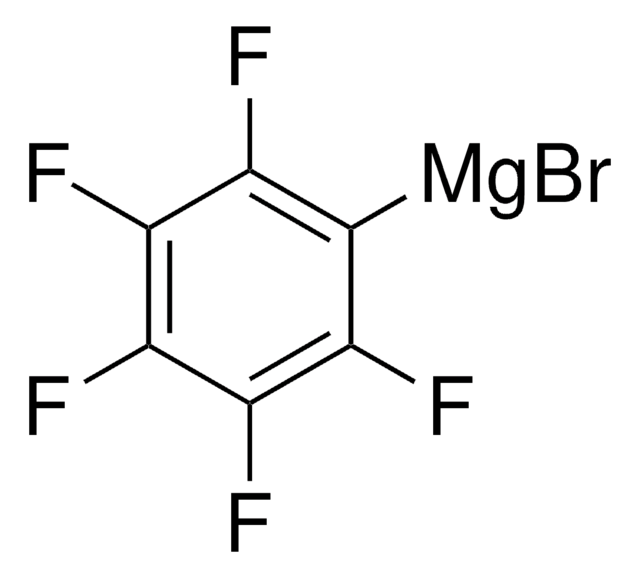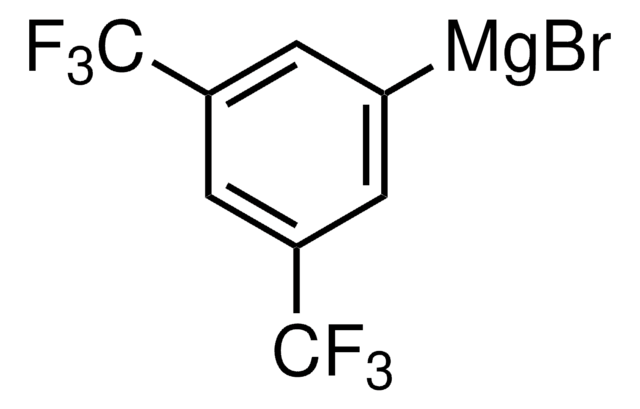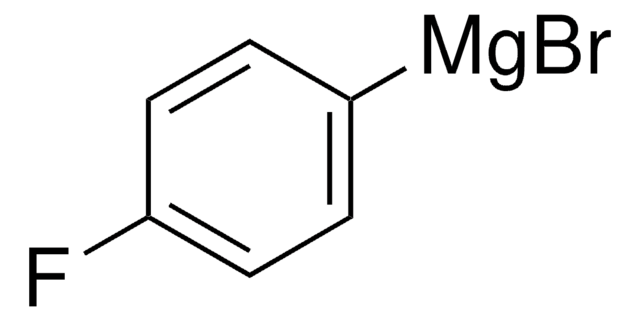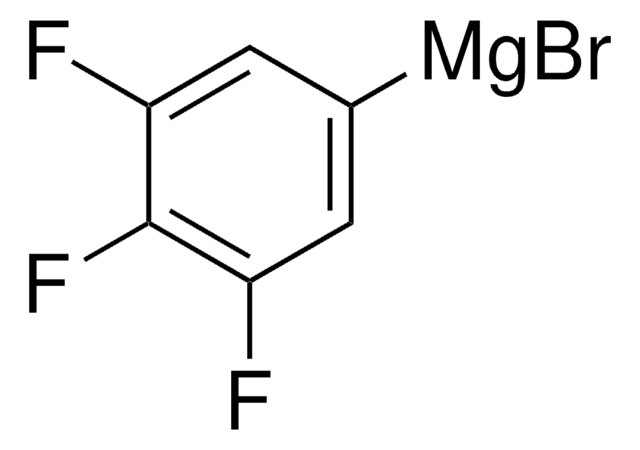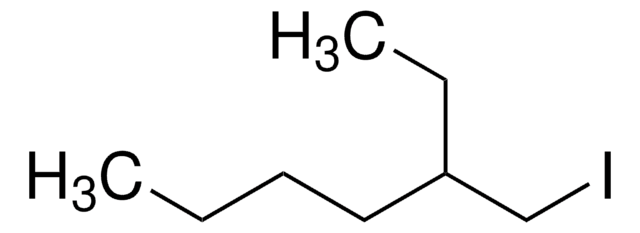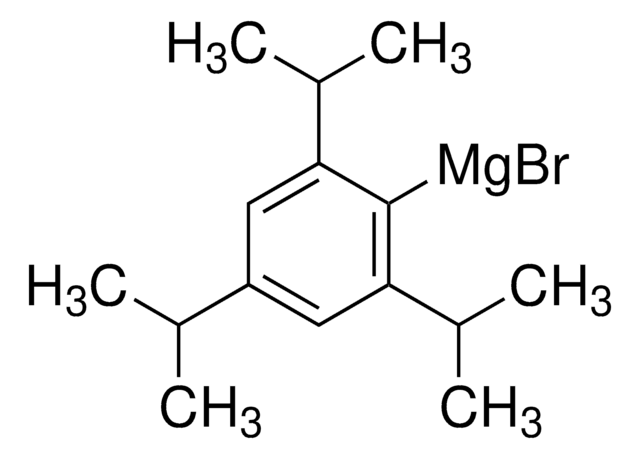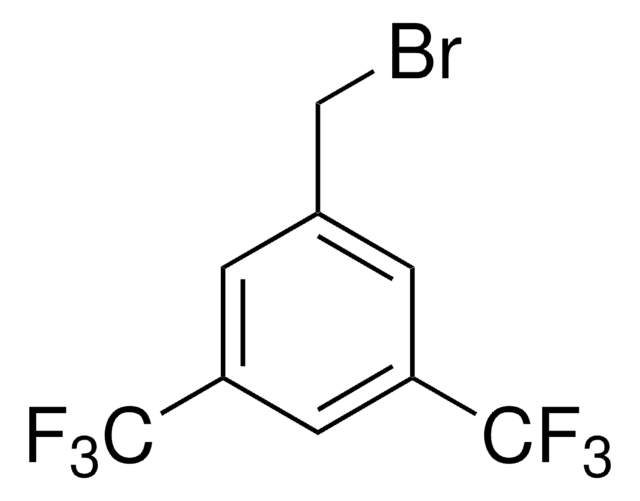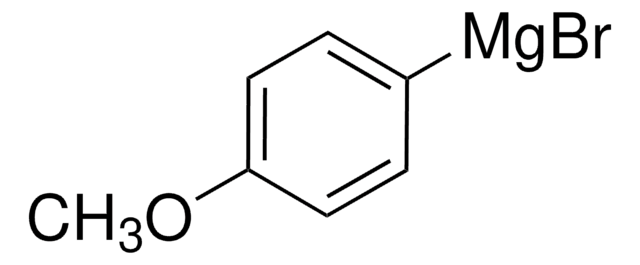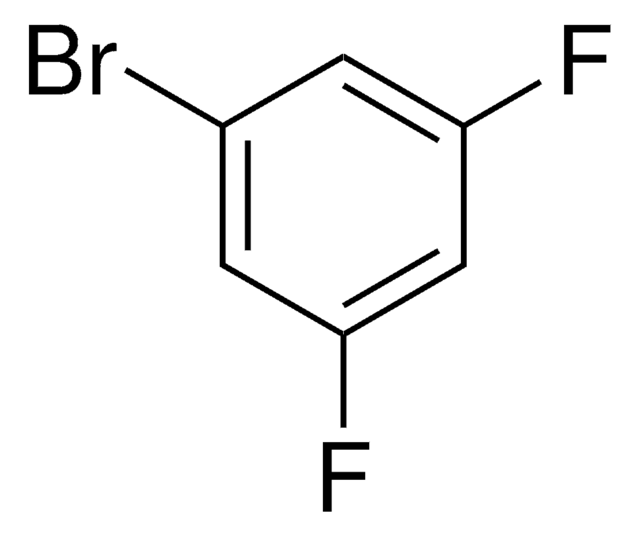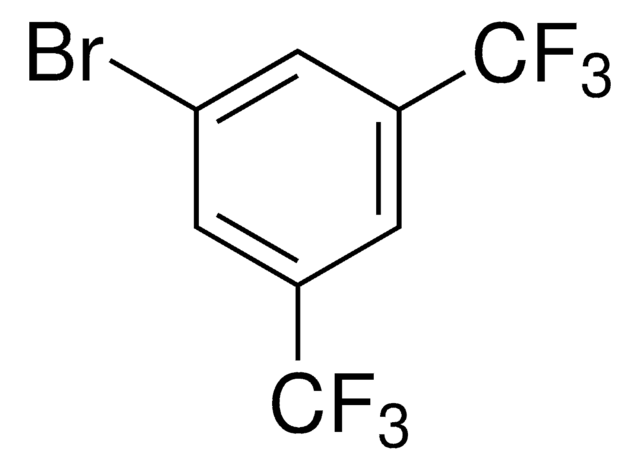561029
3,5-Difluorophenylmagnesium bromide solution
0.5 M in THF
Synonym(s):
Bromo(3,5-difluorophenyl)magnesium
Sign Into View Organizational & Contract Pricing
All Photos(1)
About This Item
Linear Formula:
F2C6H3MgBr
CAS Number:
Molecular Weight:
217.29
MDL number:
UNSPSC Code:
12352103
PubChem Substance ID:
NACRES:
NA.22
Recommended Products
reaction suitability
reaction type: Grignard Reaction
Quality Level
concentration
0.5 M in THF
bp
65 °C
density
0.971 g/mL at 25 °C
functional group
fluoro
storage temp.
2-8°C
SMILES string
Fc1cc(F)cc([Mg]Br)c1
InChI
1S/C6H3F2.BrH.Mg/c7-5-2-1-3-6(8)4-5;;/h2-4H;1H;/q;;+1/p-1
InChI key
CURGXPMIRCWEDB-UHFFFAOYSA-M
Application
3,5-Difluorophenylmagnesium bromide can be used:
- As a starting material in the synthesis of cis-2-phenyl-1-amino-cyclopentanes as AMPA receptor potentiators.
- To prepare copper(I) complexes, which are used as luminescent guest molecules in organic light-emitting diodes (OLEDs).
- As an intermediate in the synthesis of 2-aminoethylbenzofuran H3 receptor antagonists.
Legal Information
Product of Rieke Metals, Inc.
Rieke is a registered trademark of Rieke Metals, Inc.
Rieke is a registered trademark of Rieke Metals, Inc.
signalword
Danger
hcodes
Hazard Classifications
Acute Tox. 4 Oral - Carc. 2 - Eye Irrit. 2 - Flam. Liq. 2 - STOT SE 3
target_organs
Respiratory system
supp_hazards
Storage Class
3 - Flammable liquids
wgk_germany
WGK 3
flash_point_f
1.4 °F - closed cup
flash_point_c
-17 °C - closed cup
Choose from one of the most recent versions:
Already Own This Product?
Find documentation for the products that you have recently purchased in the Document Library.
Customers Also Viewed
Highly efficient green organic light-emitting diodes containing luminescent tetrahedral copper(i) complexes
Igawa S, et al.
Journal of Material Chemistry C, 1(3), 542-551 (2013)
4-(2-[2-(2 (R)-methylpyrrolidin-1-yl) ethyl] benzofuran-5-yl) benzonitrile and related 2-aminoethylbenzofuran H3 receptor antagonists potently enhance cognition and attention
Cowart M, et al.
Journal of medicinal chemistry, 48(1), 38-55 (2005)
Design and synthesis of a novel series of 1, 2-disubstituted cyclopentanes as small, potent potentiators of 2-amino-3-(3-hydroxy-5-methyl-isoxazol-4-yl) propanoic acid (AMPA) receptors
Shepherd TA, et al.
Journal of Medicinal Chemistry, 45(10), 2101-2111 (2002)
Our team of scientists has experience in all areas of research including Life Science, Material Science, Chemical Synthesis, Chromatography, Analytical and many others.
Contact Technical Service